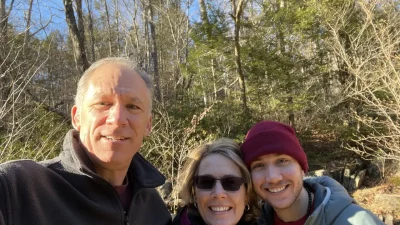(8-6-22) A fatal shooting in Fairfax County, where I live, ended the life of a young man in the midst of a mental health crisis. Watch the body cam which was released this week and ask yourself why this had to escalate.
Story courtesy of NBC.
Aaron Lynch, 26, was fatally shot by a Fairfax County officer after his family called for help. A mental health clinician was part of the response to their first 911 call but not the second, after which he was killed
Aaron Lynch died after an officer shot him on Arbor Lane the night of July 7. He was 26.
Lynch’s parents said the shooting was unjustified. The county police chief said the officer opened fire as Lynch advanced on officers while swinging a bottle.
Three officers, all trained in crisis intervention and deescalation, entered the home in the 6900 block of Arbor Lane after 8 p.m. They immediately encountered Lynch
“Hey, Aaron. Hey, bud. Whoa,” an officer can be heard saying on video.
Lynch says nothing before the encounter escalates quickly.
“Put it down, put it down, put it down,” an officer says.
“We can’t say it enough — any use of force that’s depicted on video, particularly any deadly use of force, certainly is tough to watch. It’s tough for us to watch. It’s tough for you to watch, and it’s even tougher for the family to watch,” Chief Kevin Davis said.
Lynch’s parents have seen the footage. They said in a statement that their son was having a “severe mental health crisis” and had asked for 911 to be called twice that day.
“As parents, we mourn the heartbreaking loss of our son and are left with only memories and regret. Had we known there was any possibility that the police responding to the second 911 call would use lethal force against Aaron during a mental health crisis, we would not have involved them until a mental health counselor could be present, as was the case for the response to the first 911 call,” they said.
Just prior to the shooting, three officers arrived at the house, in a residential neighborhood with large homes, and questioned Lynch’s sister about her brother’s behavior. It was their second visit to the house that night.
A county mental health clinician was on the scene at the previous visit but was not available for the second call.
Davis was questioned about why officers didn’t retreat or try to tackle Lynch instead of using deadly force.
“The police officers — you know their presence and then their repeated demands for Mr. Lynch to drop what he had in his hands amounts to verbal deescalation, and then when the electronic control weapons or the Tasers were used, that less-lethal force, I think, is another progressive effort to use less-than-deadly force to handle the situation,” he responded.
Fairfax County police have been involved in five shootings so far this year. By comparison, there were three police shootings in 2013, two in 2014, none in 2015, one from 2016 to 2019, two in 2020 and one last year.
Davis said his officers regularly respond to calls for service in which someone is in behavioral or mental health crisis. They have responded to more than 6,700 calls this year, he said. That’s an average of 33 calls per day. Of those call, Davis said police have used force less than 1% of the time.
Here’s the Lynch family’s full statement:
“Our son, Aaron, was experiencing a severe mental health crisis on July 7. He was scared and asked for both of the 911 calls that were made that day. We believe that the three police officers who answered the second 911 call could have, and should have, handled this far differently. To respond to Aaron’s mental health crisis by shooting him at all, let alone multiple times, cannot be justified. We recognize that, at times, police officers face grave and unknown dangers in the line of duty, but that was not the case for that call at our home regarding our son. Aaron was about 5’ 6”, slightly built, and holding just a bottle and a decorative mask.
As parents, we mourn the heartbreaking loss of our son and are left with only memories and regret. Had we known there was any possibility that the police responding to the second 911 call would use lethal force against Aaron during a mental health crisis, we would not have involved them until a mental health counselor could be present, as was the case for the response to the first 911 call. We hope our efforts to find out more about this incident will, in the future, help families in similar situations avoid such a tragic outcome.”




